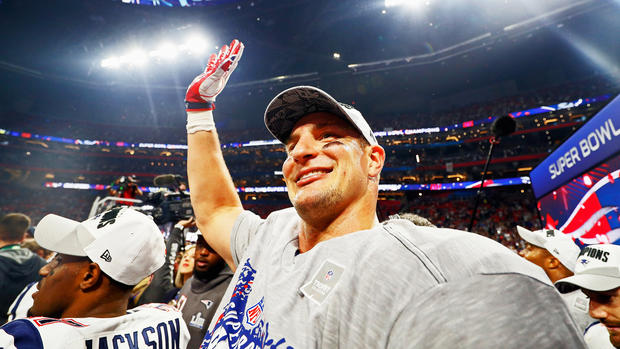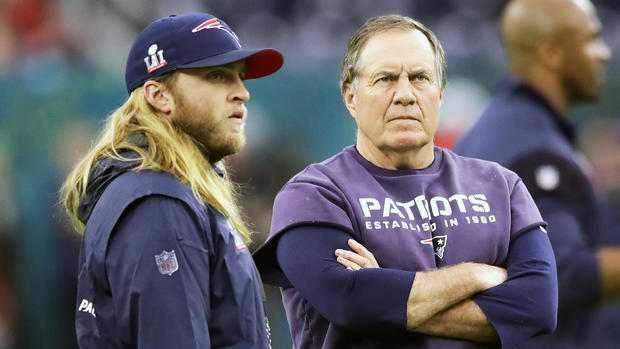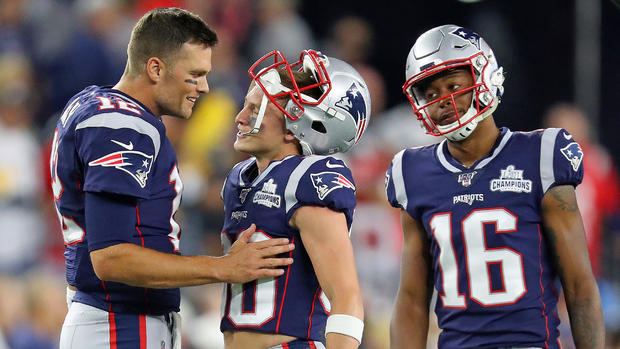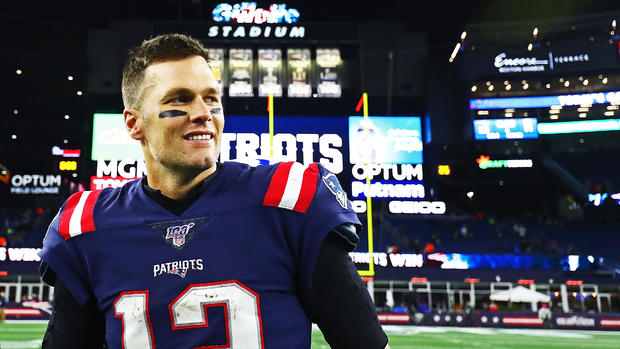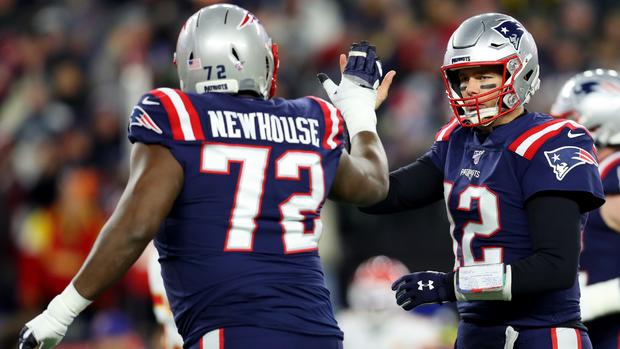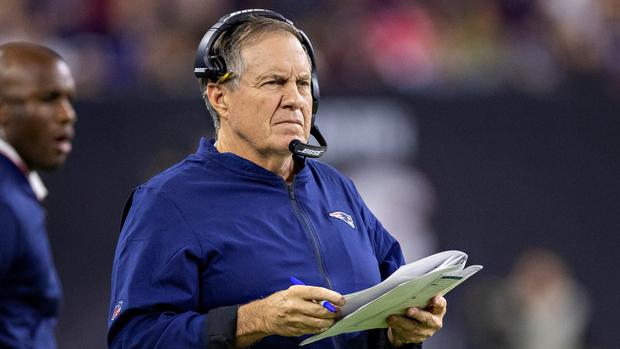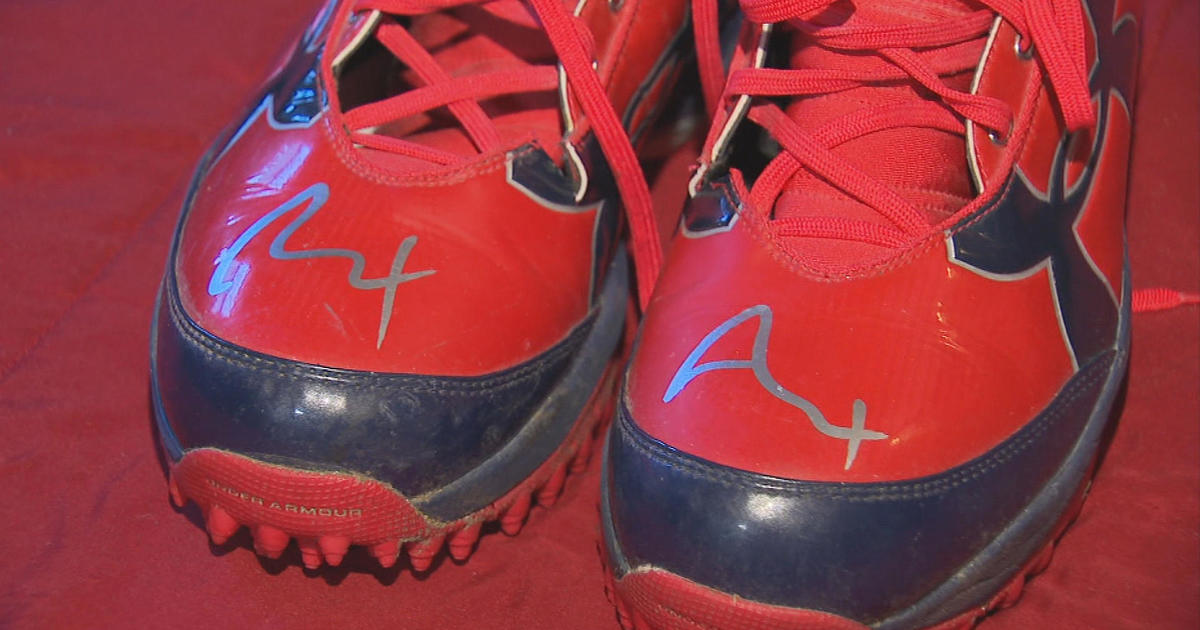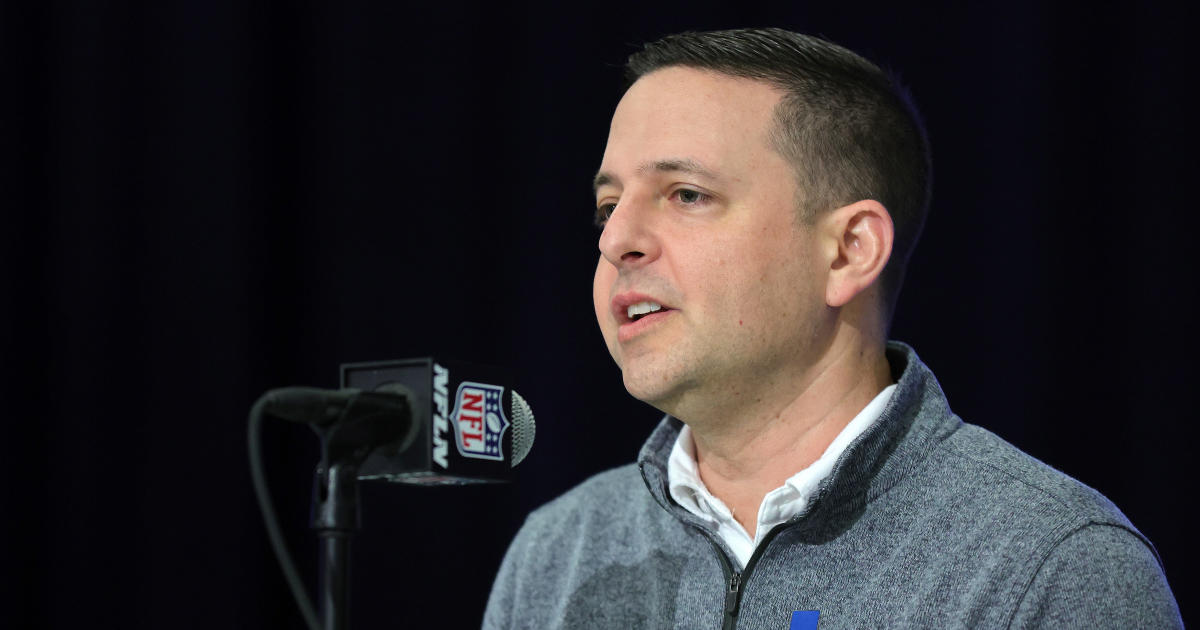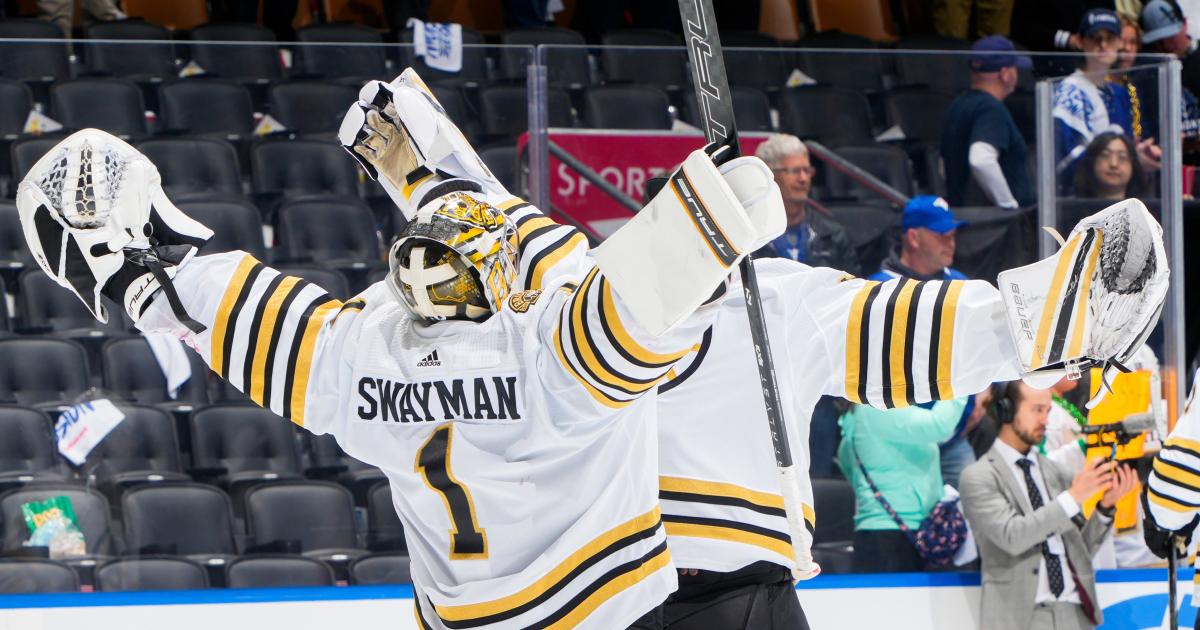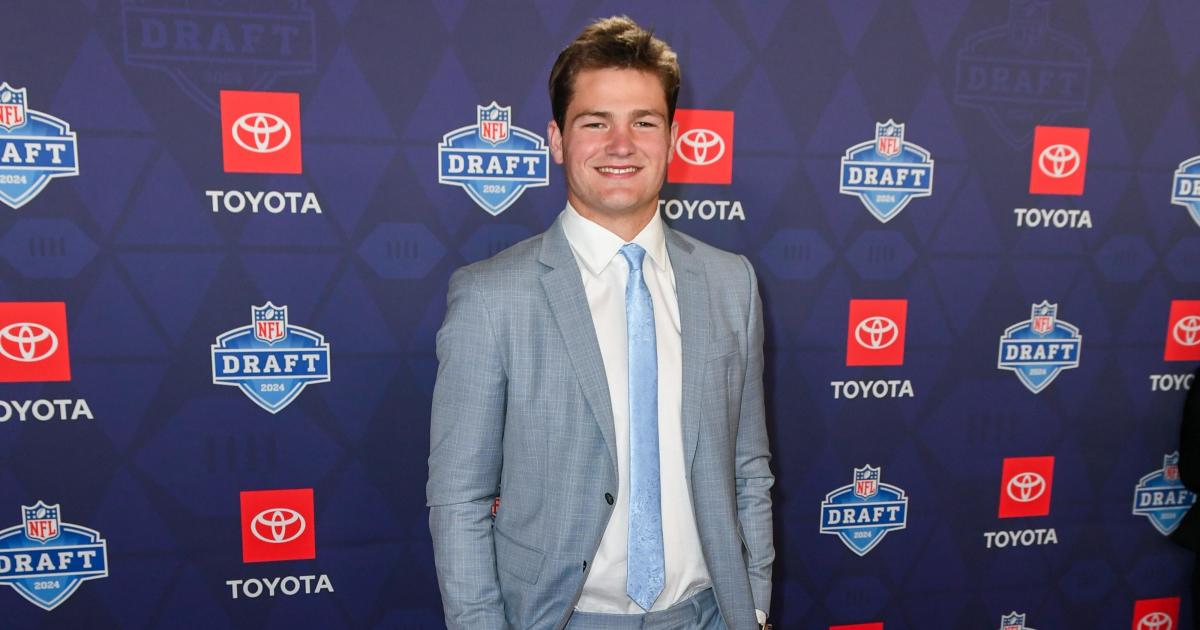In Retrospect, Patriots' 2019 Problems Were Easy To Have Foreseen
By Michael Hurley, CBS Boston
BOSTON (CBS) -- Retrospect. It sure is easy to know everything when you're aided by the benefit of retrospect.
With regard to a professional football team failing to win a playoff game, ending the season in ugly fashion, it does not take an enlightened genius to apply retrospect to point out everywhere the team went wrong on the journey to that ultimate and premature conclusion.
On the other hand, it could be a worthy exercise to look back to see what was believed before the season began, so as to ascertain whether the Achilles' heel could have and should have been spotted prior to the season beginning.
Fortunately in that regard, a fellow here at the Boston branch of the Columbia Broadcasting System did precisely that back in July, examining potential problem areas for the defending Super Bowl champions. At the time, the exercise was framed thusly: The Patriots always seem to make the offseason CONCERNS not matter at all, making the Super Bowl every year despite what appeared to be significant flaws on the roster and hurdles in their way. Here are those CONCERNS this season. Will they matter?
Now that we know how the season ended, we can look back the five areas listed and we can determine how much they actually affected the season.
Preseason Problem No. 1: No Gronk Replacement
Retrospective Conclusion:
It was a problem. A big one.
Rob Gronkowski flirted with retirement after the 2017 season and, having secured what was for all intents and purposes a spectacular Super Bowl-winning diving catch, pulled the trigger after 2018. This move should not have caught the Patriots by surprise.
Yet the team had to lure Ben Watson out of retirement in May, despite learning shortly after making their pitch that Watson would face a suspension to start the year. The rest of the tight end depth chart was filled by Ryan Izzo and Matt LaCosse.
It did not work out. Not at all.
That trio of tight ends combined for 36 receptions for 418 yards and two touchdowns. Last year, in what was considered to be a woefully unproductive season by his Hall of Fame standards, Gronkowski caught 47 passes for 682 yards with three touchdowns on his own.
And the Watson-Izzo-LaCosse blocking compared to Gronkowski and Dwayne Allen was not nearly on the same level. The run game struggled. The pass game -- which has heavily leaned on tight ends throughout Tom Brady's career -- sputtered.
If there were to be one major second-guess of last offseason, it would be in the neglect of the tight end position, both in free agency and in the draft, where eight tight ends were selected in the first three rounds.
Preseason Problem No. 2: Losing Their Defensive Coordinator Two Straight Years Could Hurt
Retrospective Conclusion:
Not a problem. In the least. Not on defense, anyway.
Losing Matt Patricia after 2017 and losing Brian Flores after 2018 figured to leave a dent in the Patriots' defense. Instead, the elevation of Steve Belichick plus the addition of first-year coach Jerod Mayo managed to help produce the best defense of Bill Belichick's entire Patriots career.
Nobody really saw that one coming.
Where the loss of coaches seemed to actually hurt was on the other side of the ball. Receivers coach Chad O'Shea and quarterbacks coach Jerry Schuplinski bolted for Miami with Flores, which may have contributed to some of the choppiness of the offense. Despite Josh McDaniels and Tom Brady steering the ship, the offense finished the year ranked 15th in yards (the lowest the Patriots have ranked since 2003) and seventh in points (their lowest ranking since the Matt Cassel-led 2008 season).
Preseason Problem No. 3: Behind Julian Edelman, A Thin Depth Chart At Wide Receiver
Retrospective Conclusion:
It was perhaps the team's fatal flaw.
As previously stated, the Patriots ranked 15th in yards and seventh in points. One can only imagine where they would've been if not for an otherworldly season from Julian Edelman at age 33.
Edelman, battling through injuries throughout the year, caught an even 100 passes for 1,117 yards and six touchdowns. Edelman was targeted 153 times; among wide receivers, Phillip Dorsett ranked second ... with just 54.
The production out of the wide receiving corps was quite simply not up to standard for the way business is done in Foxboro.
Dorsett, previously a football magnet who caught every pass thrown his way, caught just 29 passes on those 54 targets, for 397 yards and five touchdowns.
Undrafted rookie Jakobi Meyers had 26 receptions for 359 yards; he didn't make it to the end zone. Josh Gordon's brief run generated just 287 yards and a touchdown.
The situation was dire, to the point where Belichick felt compelled to cough up a second-round pick in order to acquire Mohamed Sanu. And his midseason appearance started on a promising note, with 10 receptions for 81 yards and a touchdown against Baltimore. But he had just 14 receptions for 103 yards and no touchdowns over the final six games of the year. In the playoff game, he had one catch on five targets for 11 yards. He caught just 26 passes on 47 targets.
And then there was the first-round pick -- the first first-round pick at receiver during Belichick's tenure. And after missing the first half of the year due to a hamstring injury, N'Keal Harry certainly underwhelmed. He caught just 12 passes for 105 yards with two touchdowns. He contributed some with rushes on end-arounds, and he looks more than physically capable of succeeding in the NFL. But as a rookie receiver, even with light expectations, he was a disappointment.
In a summer that saw invites sent out to Demaryius Thomas, Maurice Harris, Bruce Ellington and Dontrelle Inman while hoping for the best from Damoun Patterson, Meyers, and converted Bemidji State defensive back Gunner Olszewski ... this final result was not at all surprising.
Preseason Problem No. 4: Tom Brady Is Old
Retrospective Conclusion:
Not really a problem.
Put it this way: Physically, Tom Brady was more than capable of playing at a Super Bowl level this season. Yet with fill-ins along the offensive line, the aforementioned thin receiving corps, and a running game that lost key components and never could quite get going, the offense as a whole struggled. So did Brady.
Yet while 2019 was a statistical dud for Brady, he never looked physically overwhelmed, and he certainly didn't look like an old geezer incapable of playing some very good football at the NFL level.
With a tight end and a more cohesive offensive line, Tom Brady's age 42 season almost certainly has a different ending. Instead, it looked a whole lot like 2006, 2009, and 2013.
Preseason Problem No. 5: A Massive Unknown At Left Tackle
Retrospective Conclusion:
A big, big problem. Though not for the reasons we expected.
The concern here was that Trent Brown was departing after a very, very good season in his lone year in New England. In his place would go Isaiah Wynn, who is undersized and missed his rookie season due to an injury. Could Wynn fill those massive, massive shoes?
Turns out, Wynn played just fine. The problem was that Wynn didn't play for half of the season.
Wynn's Week 2 turf toe injury prompted the Patriots to put Marshall Newhouse in a position that neither the Patriots or Newhouse himself likely wanted or expected. Having signed as a street free agent in September, Newhouse was likely signed with the idea of getting some spot work at right tackle, after Marcus Cannon suffered a minor injury early in the year. Instead, Newhouse was thrust into the starting left tackle spot. It didn't go too well.
It really wasn't Newhouse's fault. He started just two games a year ago, and it clearly took him several weeks to get his conditioning up to par, considering his late start to the season.
Nevertheless, a year after surviving the Nate Solder-to-Trent Brown transition with no issue whatsoever, left tackle was an issue that plagued the Patriots in 2019.
OK, Retrospective Genius. So What's Next?
Obviously, despite an 8-0 start, the Patriots gradually got worse as the season wore on. That's generally the opposite of the way things work in Foxboro, aside from a few rare exceptions.
So while it's always a fool's endeavor to try to forecast exactly how Bill Belichick will attack an offseason, it would make sense to look back at some of the more disappointing seasons to see what the plan was.
In 2003, after missing the postseason in their post-championship season, Belichick showed the NFL what he's capable of doing. He signed Rodney Harrison and dumped longtime Patriot Lawyer Milloy just days before the season. He also signed Ted Washington to help reshape the defense, while drafting Ty Warren, Eugene Wilson, Bethel Johnson, Dan Klecko, Asante Samuel, Dan Koppen and Tully Banta-Cain. They'd win the next two Super Bowls.
After some regrets in 2005 and 2006 (trading Deion Branch, drafting Chad Jackson, signing Chad Brown and Monty Beisel, and suffering the painful AFC title game loss in Indy, to name a few), Belichick again went nuclear for 2007. He acquired Randy Moss and Wes Welker for peanuts, remodeling the entire offense in one fell swoop. A year after the Patriots allowed the second-fewest points in the NFL, Belichick maintained a defense that ranked fourth in that category in 2007. The team, obviously, went 16-0, but ran out of gas at the end. Still, the significant response to the lack of receivers could serve as an indicator of what might come this offseason.
The 2009 season was famously a difficult one for Belichick and Brady to navigate, and a serious shakeup was clearly needed for 2010. Adalius Thomas was released, ending his career. Shawn Springs was released, also ending his career. Laurence Maroney was shipped out, and then early in the year, Randy Moss was shockingly shown the door as well. Belichick also had what was likely his best draft ever, selecting Devin McCourty in the first round, Rob Gronkowski in the second round, and Aaron Hernandez in the fourth round.
Brady went from a so-so season in 2009 to an MVP season in 2010, throwing 36 touchdowns and just four interceptions, as the team went from 10-6 in '09 to 14-2 in '10. Had it not been for a stunning no-show in the divisional round of the playoffs, that team very well could have (and should have) been playing for a Super Bowl. (In Week 10, the Patriots blew out the eventual AFC-champion Steelers, in Pittsburgh.)
In 2013, Brady was not given much to work with. The triumvirate of Aaron Dobson, Kenbrell Thompkins and Josh Boyce elicits chills in New England football fans, as it always brings to mind a wasted Patriots season. What's often forgotten about the 2013 Patriots was their 26th-ranked defense. The team managed to reach the conference title game but never really competed in Denver, as Brady was stuck throwing passes to Matthew Slater, Matthew Mulligan, and Austin Collie. (Mulligan would catch two more passes in his career. Slater's yet to catch one since then, and that was Collie's final NFL game.)
In the spring of 2014, Belichick went Full Belichick. He acquired Darrelle Revis as soon as humanly possible, and he also signed Brandon Browner and re-signed Patrick Chung to change the defensive backfield overnight. Brandon LaFell filled a much-needed role at receiver, fourth-round draft pick Bryan Stork helped to solidify a shaky interior line, and the Patriots of course went on to win the Super Bowl, their first in a decade.
The 2015 Patriots represent another similarity to the 2019 squad. They started the year 10-0, before a muffed punt, a no-show vs. Philly, a poor OT coin toss decision and The Steven Jackson Game had them finish with a 12-4 record and no home-field advantage in the playoffs. They did reach the AFC Championship Game, but Jamie Collins somehow got beaten twice by Owen Daniels (in his penultimate NFL game) for touchdowns, and the late two-man show from Brady and Gronkowski had the Patriots coming up just short.
Recognizing a need for change in 2016, Belichick traded away Chandler Jones and released LaFell and Scott Chandler. Belichick traded for Martellus Bennett, providing the team with some much-needed Gronkowski insurance, and drafted Joe Thuney, Jacoby Brissett, and Malcolm Michell. The team acquired Kyle Van Noy midseason, too. All of those additions helped contribute to the Super Bowl LI victory that ended the season.
By that standard, after a year where some clear offseason weaknesses proved to be too much to overcome once the games began, we all ought to buckle up for a rather significant offseason of change for Belichick and the Patriots.
You can email Michael Hurley or find him on Twitter @michaelFhurley.
